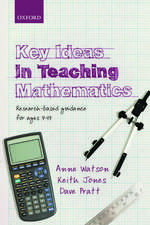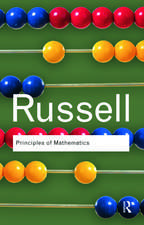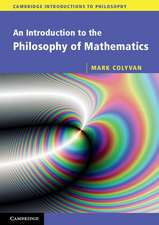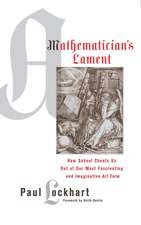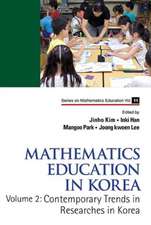The Oxford Handbook of Generality in Mathematics and the Sciences: Oxford Handbooks
Editat de Karine Chemla, Renaud Chorlay, David Rabouinen Limba Engleză Hardback – 14 iul 2016
Din seria Oxford Handbooks
-
 Preț: 236.89 lei
Preț: 236.89 lei - 23%
 Preț: 855.11 lei
Preț: 855.11 lei - 29%
 Preț: 859.35 lei
Preț: 859.35 lei - 12%
 Preț: 308.25 lei
Preț: 308.25 lei - 23%
 Preț: 1052.07 lei
Preț: 1052.07 lei - 15%
 Preț: 273.41 lei
Preț: 273.41 lei - 29%
 Preț: 1083.61 lei
Preț: 1083.61 lei - 14%
 Preț: 278.15 lei
Preț: 278.15 lei - 13%
 Preț: 304.72 lei
Preț: 304.72 lei - 15%
 Preț: 314.19 lei
Preț: 314.19 lei - 29%
 Preț: 931.18 lei
Preț: 931.18 lei - 25%
 Preț: 829.05 lei
Preț: 829.05 lei - 17%
 Preț: 912.51 lei
Preț: 912.51 lei - 24%
 Preț: 1071.82 lei
Preț: 1071.82 lei - 11%
 Preț: 258.04 lei
Preț: 258.04 lei - 26%
 Preț: 1376.97 lei
Preț: 1376.97 lei - 15%
 Preț: 357.85 lei
Preț: 357.85 lei - 30%
 Preț: 842.04 lei
Preț: 842.04 lei -
 Preț: 303.54 lei
Preț: 303.54 lei -
 Preț: 487.85 lei
Preț: 487.85 lei - 17%
 Preț: 260.81 lei
Preț: 260.81 lei - 21%
 Preț: 359.87 lei
Preț: 359.87 lei - 12%
 Preț: 267.23 lei
Preț: 267.23 lei - 33%
 Preț: 815.51 lei
Preț: 815.51 lei - 13%
 Preț: 346.76 lei
Preț: 346.76 lei - 30%
 Preț: 1065.79 lei
Preț: 1065.79 lei - 29%
 Preț: 930.94 lei
Preț: 930.94 lei -
 Preț: 263.30 lei
Preț: 263.30 lei - 22%
 Preț: 1095.69 lei
Preț: 1095.69 lei - 14%
 Preț: 987.01 lei
Preț: 987.01 lei - 21%
 Preț: 863.60 lei
Preț: 863.60 lei - 15%
 Preț: 358.80 lei
Preț: 358.80 lei - 16%
 Preț: 264.39 lei
Preț: 264.39 lei - 23%
 Preț: 839.90 lei
Preț: 839.90 lei - 34%
 Preț: 929.22 lei
Preț: 929.22 lei - 29%
 Preț: 855.42 lei
Preț: 855.42 lei - 33%
 Preț: 737.68 lei
Preț: 737.68 lei - 16%
 Preț: 263.35 lei
Preț: 263.35 lei - 29%
 Preț: 942.77 lei
Preț: 942.77 lei - 20%
 Preț: 343.85 lei
Preț: 343.85 lei - 26%
 Preț: 342.76 lei
Preț: 342.76 lei - 13%
 Preț: 264.87 lei
Preț: 264.87 lei - 30%
 Preț: 818.12 lei
Preț: 818.12 lei - 30%
 Preț: 815.25 lei
Preț: 815.25 lei - 25%
 Preț: 366.95 lei
Preț: 366.95 lei - 21%
 Preț: 861.04 lei
Preț: 861.04 lei - 12%
 Preț: 250.34 lei
Preț: 250.34 lei
Preț: 725.45 lei
Preț vechi: 1090.58 lei
-33% Nou
Puncte Express: 1088
Preț estimativ în valută:
138.83€ • 142.18$ • 115.49£
138.83€ • 142.18$ • 115.49£
Carte disponibilă
Livrare economică 14-20 februarie
Preluare comenzi: 021 569.72.76
Specificații
ISBN-13: 9780198777267
ISBN-10: 0198777264
Pagini: 528
Ilustrații: 37
Dimensiuni: 191 x 247 x 36 mm
Greutate: 1.08 kg
Editura: OUP OXFORD
Colecția OUP Oxford
Seria Oxford Handbooks
Locul publicării:Oxford, United Kingdom
ISBN-10: 0198777264
Pagini: 528
Ilustrații: 37
Dimensiuni: 191 x 247 x 36 mm
Greutate: 1.08 kg
Editura: OUP OXFORD
Colecția OUP Oxford
Seria Oxford Handbooks
Locul publicării:Oxford, United Kingdom
Recenzii
This book astonishes with its richness, its methodological relevance, and its novelty. We must recommend this book to a readership specializing in the history and philosophy of science because of the variety of approaches grouped together and because of its undeniable programmatic virtue.
[T]his book contains many very good things... Several of the contributors to this volume succeed in showing how careful attention to the special meanings attached to "the general" and its cognates can lead to deeper historical insights.
...this collective book proposes an interesting theoretical framework as well as a collection of studies which are original and important for the history of science, both from a historical and a methodological viewpoint.
Early mathematicians and scientists seldom discussed their use of generality; the authors expertly examine their work to determine how this concept evolved ... This is an important resource for practitioners in the areas of the history and philosophy of science and mathematics ... Recommended.
The accessibility of the essays is such that not only the specialist, but anyone engaged in the history of science or one of the books historical key figures will benefit from them. Its ideal audience will be composed of historians of science with epistemological interests, and epistemologists wishing to engage with historical matters.
[T]his book contains many very good things... Several of the contributors to this volume succeed in showing how careful attention to the special meanings attached to "the general" and its cognates can lead to deeper historical insights.
...this collective book proposes an interesting theoretical framework as well as a collection of studies which are original and important for the history of science, both from a historical and a methodological viewpoint.
Early mathematicians and scientists seldom discussed their use of generality; the authors expertly examine their work to determine how this concept evolved ... This is an important resource for practitioners in the areas of the history and philosophy of science and mathematics ... Recommended.
The accessibility of the essays is such that not only the specialist, but anyone engaged in the history of science or one of the books historical key figures will benefit from them. Its ideal audience will be composed of historians of science with epistemological interests, and epistemologists wishing to engage with historical matters.
Notă biografică
Karine Chemla is currently Senior Researcher at the French National Center for Scientific Research (CNRS), in the research group SPHERE. Her interest is in the history of mathematics in ancient China within the context of a world history. She also researches modern European mathematics. She focuses, from a historical anthropology viewpoint, on the relationship between mathematics and the various cultures in the context of which it is practiced and cultivated. Chemla published, with Guo Shuchun, Les neuf chapitres (2004). She edited The History of Mathematical Proof in Ancient Traditions (2012), and co-edited with J. Virbel Texts, Textual acts and the History of Science (2015). Since 2011, she works with Agathe Keller and Christine Proust on the ERC project "Mathematical Sciences in the Ancient World" (SAW).Renaud Chorlay was trained in the social sciences at Sciences-Po Paris, and in mathematics and history of mathematics at Paris Diderot University. He works in the teacher-training department of Paris Sorbonne University. His main research field is the history of mathematics in the modern period, with specific interests in qualitative analysis, topology and differential geometry. He also works on the connections between history of mathematics and teaching of mathematics, either in the classroom, in teacher-training, or in theoretical didactics.David Rabouin is a Senior Research Fellow (CR1) at the French National Center for Scientific Research (CNRS), in the research group SPHERE. His interest is in the history of philosophy and mathematics in early Modern Times, with special focus on Descartes and Leibniz. He also works in contemporary French Philosophy.
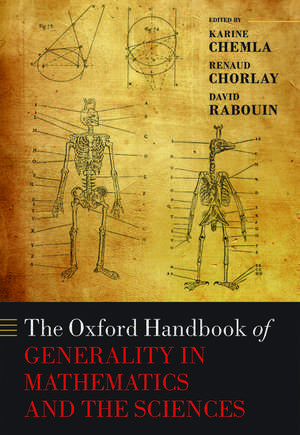
![Maths Frameworking -- Pupil Book 3.1 [Third Edition]](https://i2.books-express.ro/bt/9780007537778/maths-frameworking-pupil-book-3-1-third-edition.jpg)





